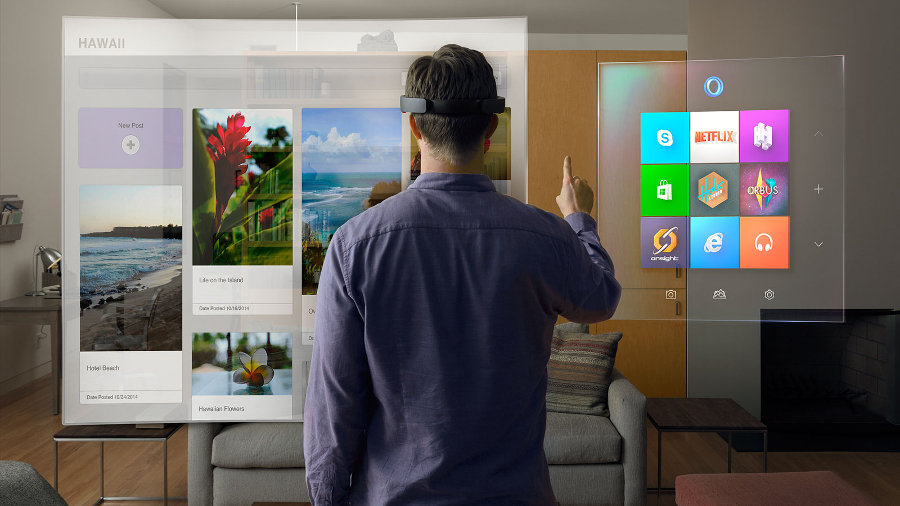Microsoft makes Windows Holographic available to all headset vendors
It's not simply about Microsoft's own HoloLens

Sign up for breaking news, reviews, opinion, top tech deals, and more.
You are now subscribed
Your newsletter sign-up was successful
Microsoft has decided that third-party VR headset makers should have access to its Windows Holographic OS to bring mixed reality to a wider audience in the future.
This means that Windows Holographic won't be limited to Microsoft's own HoloLens, and any firm will be able to access it to realize mixed reality experiences on their own hardware – mixed reality (broadly speaking) being the combination of virtual reality and the real world, which allows for the overlay of VR objects onto real environments.
That's quite different to a purely virtual world, of course, and allows for clever tricks such as being able to see your actual physical hands as you manipulate a virtual object. Or incorporating a holographic representation of another person into a real world setting, so you can meet and interact with them, opening up a lot of possibilities in terms of collaboration with folks who may be many miles away from you.
All shapes and sizes
In a blog post, Microsoft said that: "Windows Holographic is coming to devices of all shapes and sizes from fully immersive virtual reality to fully untethered holographic computing."
The company noted it has been talking to device manufacturers and chip firms including Intel, AMD, Qualcomm, HTC, Acer, Asus, Dell, HP, Lenovo, MSI and others.
This is still early days of course, but it should mean the development of a good deal more pieces of hardware in the VR/mixed reality sphere. As Microsoft points out, the market for virtual reality is expected to be selling some 80 million devices per year by the close of the decade.
By that time, the price tags on these sort of headsets should have been reduced considerably, because at the moment for the higher-end VR hardware like HTC's Vive, cost is definitely a barrier to adoption.
Sign up for breaking news, reviews, opinion, top tech deals, and more.
- Also check out: What Windows 10 means for VR and AR
Darren is a freelancer writing news and features for TechRadar (and occasionally T3) across a broad range of computing topics including CPUs, GPUs, various other hardware, VPNs, antivirus and more. He has written about tech for the best part of three decades, and writes books in his spare time (his debut novel - 'I Know What You Did Last Supper' - was published by Hachette UK in 2013).